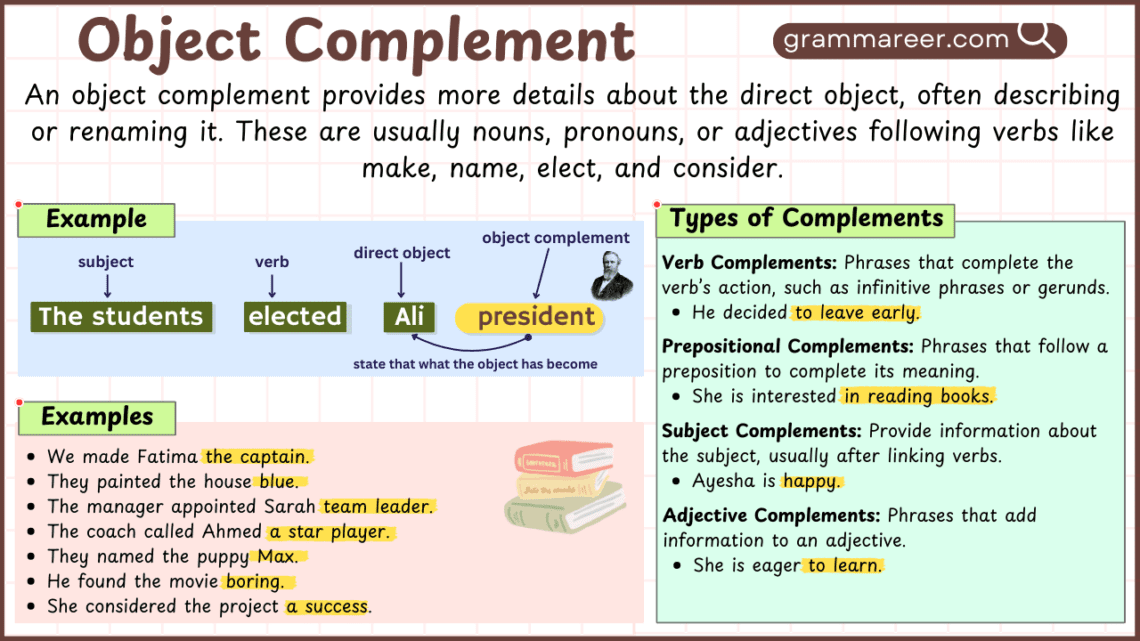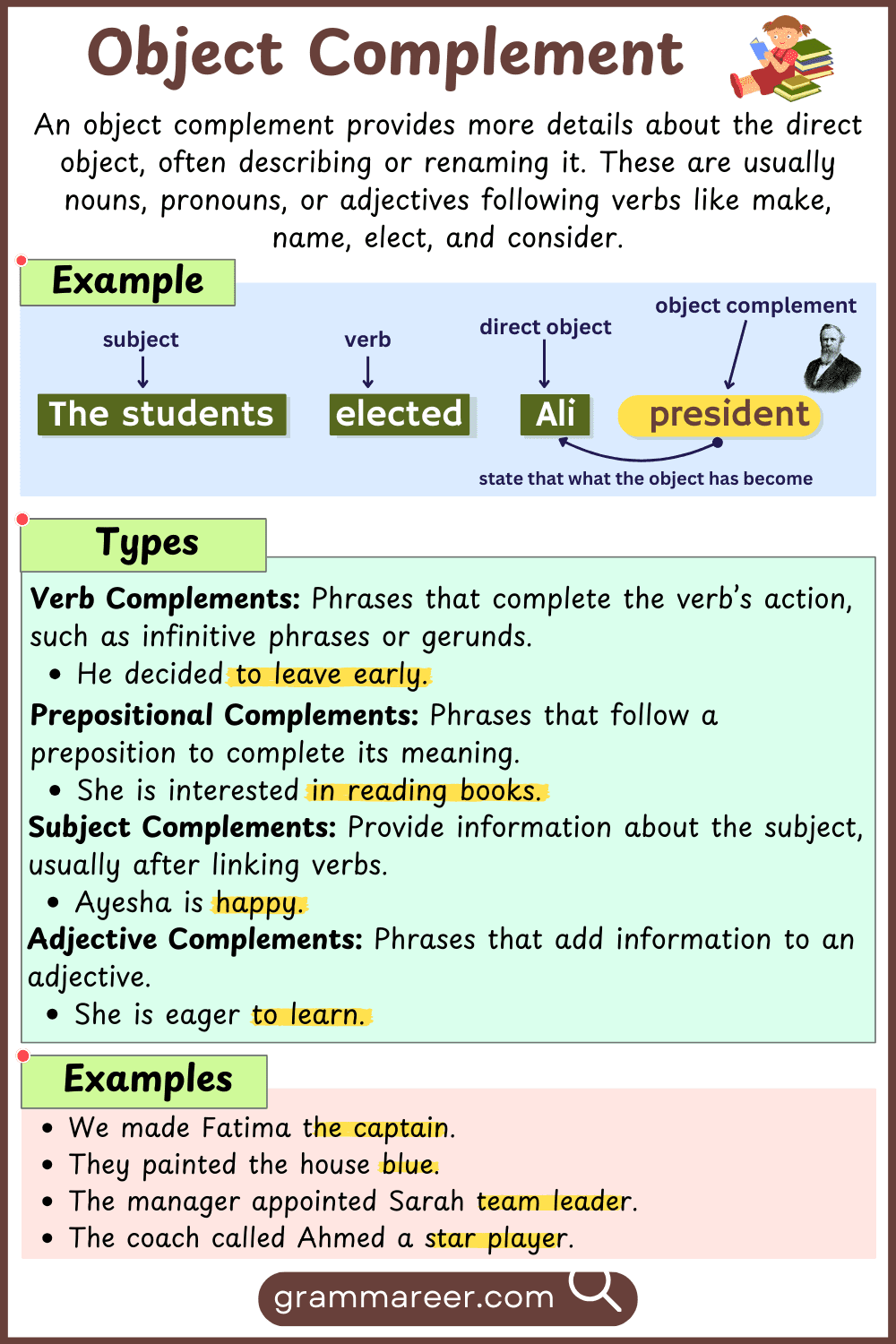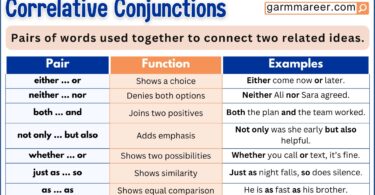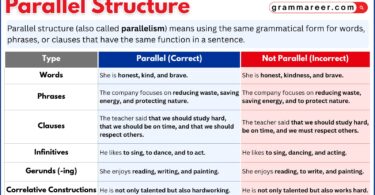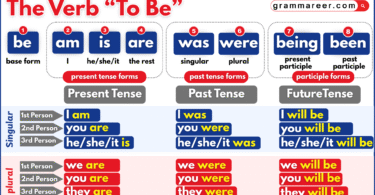In English grammar, object complements are words that tell more about the object in a sentence. They make the meaning clearer and easier to understand. Object complements can describe or rename the object, helping us know what the action does to it. They add more details to help readers or listeners understand the message better.
Table of Contents
What is an Object Complement?
An object complement is a word or group of words that tells us more about the direct object. It can describe or rename the object. Object complements are usually nouns, pronouns, or adjectives and often follow verbs like make, name, call, consider, and appoint.
Example: The team made Sara captain.
“Captain” tells us more about “Sara” and shows what she became.
✅ Correct: They called the cake delicious.
“Delicious” describes the cake, giving us more information.
Types of Complements
Verb Complements
Verb complements are words or phrases that follow a verb to complete its meaning. These can be infinitive phrases or gerunds.
Example: She plans to travel.
“To travel” completes the verb “plans.”
Example: He enjoys reading.
“Reading” completes the verb “enjoys.”
Prepositional Complements
Prepositional complements complete the meaning of a preposition. They are usually noun phrases or clauses.
Example: He is good at drawing.
“At drawing” adds more detail about what he is good at.
Subject Complements
Subject complements provide information about the subject, usually after linking verbs like is, seems, or becomes.
Example: The sky is blue.
“Blue” describes the subject, “the sky.”
Adjective Complements
Adjective complements add information to an adjective, often starting with to or that.
Example: She is happy to help.
“To help” adds meaning to the adjective “happy.”
Examples of Object Complements
- We appointed John leader.
“Leader” gives more information about John. - They called the dog friendly.
“Friendly” describes the dog. - The teacher found the homework easy.
“Easy” describes the homework. - They named the baby Emma.
“Emma” renames the baby. - The movie made her sad.
“Sad” describes her feelings.
Table of Examples
| Sentence | Direct Object | Object Complement |
|---|---|---|
| We elected Mary class president. | Mary | class president |
| The judge found the defendant innocent. | the defendant | innocent |
| The group named the kitten Snowy. | the kitten | Snowy |
| They painted the walls yellow. | the walls | yellow |
| The coach called the team champions. | the team | champions |
Summary
Object complements add important details to direct objects by describing or renaming them. They usually follow verbs like make, name, and consider. Practicing these will help you create more detailed and clear sentences.
Read More

